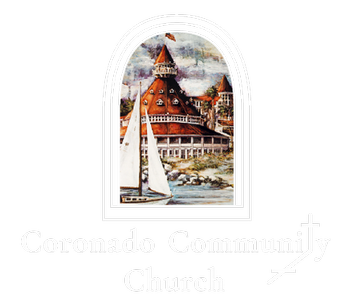Matthew 24:36-44
A Sermon by Pastor Eric Smith
Published On: November 27, 2022
A Sermon by Pastor Eric Smith
Published On: November 27, 2022
Today begins the church season of Advent. It means “coming” or “arrival.”
The entire season focuses on the birth of Jesus the Christ in his First Advent, and the anticipation of the return of Christ the King in his repeating Advents. So Advent is more than simply marking a 2,000 year-old event in history. It is celebrating the revelation of that all of creation has been reconciled to God in Christ.
Scripture readings focus upon both past and future. Advent also symbolizes the spiritual journey of individuals and our congregation, as we affirm that Christ has come, that He is present in the world today, and that He will come again.
The passage we’ll consider this morning is from the Gospel of Matthew.
Let me start with a story…
I went to three colleges before I had decided I had a reason to go to college. Once I decided that I wanted to be a youth pastor I looked for the nearest Christian College which was Point Loma Nazarene. I didn’t know Nazarenes from Episcopalians… I was happy to go to a Christian school where I could learn about faith and, particularly, the Bible.
Along the way I met another student named Tom. He was a Bible guy, too, and we got to talking. Over time our conversation went to the end times, the rapture, and the second coming. That was interesting and compelling stuff for young Bible students.
Tom said, My uncle has the Book of Revelation figured out! He knows what it means. Do you want to go with me and we can talk with him about it?
You bet I did – and so we went.
Tom’s uncle gave us the works… what all the metaphors meant, how things would end, when Jesus was coming back, and how those who qualified would be raptured away.
It was a lot to take in.
But even as a 22 year old who couldn’t yet argue anything that guy said, it was clear to me that the scenario he constructed would not hold together.
So let’s go to what Matthew said…
Matthew was in the midst of answering these three questions.
First…Who is this Son of Man?
Second…When is the end when the Son of Man comes back?
and…
Third…What does this coming mean?
First, the Son of Man is Jesus. That’s what he called himself. He never called himself the Son of God – his followers did that.
Now even though this passage is a soliloquy by Jesus, it is not likely that Jesus said these words… at least not in this manner.
Here’s some explanation about why I would say that…
The Jesus Seminar was a group of scholars who considered and debated everything in the New Testament that has been attributed to Jesus over a period of about 20 years.
The words of Jesus would be all of the words that are printed in red in your red-letter Bibles. They took a scholarly stance on whether or not Jesus said those words. They wrote papers, they presented lectures, they had conventions. And… they voted… not simply yes he said them or no he did not say them… they voted with five levels of possibility – yes… probably…possibly… probably not… and not.
Most of the scholars thought not about our passage today. The Seminar’s collective opinion was that Jesus did not speak these words in this context.
Why bother with them? Because Matthew and the people he represented thought this concept was important in the gospel story – the words convey the truth of the Christ, even if they were not literally spoken by Jesus. So they are worth interpreting and their meaning is worth considering for our lives.
Both a common and an incorrect interpretation of this passage is that it’s about the second coming of Christ. This term … the ‘second coming’ … is not in the Bible.
It was coined by someone with an agenda. The term, ‘second coming,’ promotes a theological concept that many Christians accept without question or concern.
Pause for moment…
The church I served in Pasadena is located just a few blocks from the California Institute of Technology, otherwise known as Cal Tech. It is the west coast version of M.I.T. At the end of his career, Albert Einstein spent several years at Caltech… and (another piece of trivia) he regularly dropped off and picked up his granddaughter from the church’s pre-school.
One Sunday we had two very distinguished looking couples attend – I didn’t know who they were. Afterwards I was told that it was the president and the dean of Caltech and
their spouses. A month later I received an invitation to participate in the commencement ceremony at Caltech… and then I was asked to lead a retreat for the Christian Club. All of which I did.
We had Caltech students attend the church, but this gave me access to about 40 of them.
What I found during the weekend retreat was that for all of their brilliance – these young people would literally soon be rocket scientists – their theology included end times, rapture, and an impending battle of Armageddon. These were also the same people who would be designing and building missile systems and weapons of mass destruction.
Our country, or any country, is not best-served in having technical, military, or political leaders with a religious opinion that the end of the world is inevitable and coming soon!
Good theology is important for everybody.
Back to Matthew…
If there were a second coming, which is always referred to as a future event, logic suggests that there must be two comings of Christ, the first one of 2000 years ago and a second one at some future date… and that’s it.
But that’s wrong. Really wrong. Christ is alive. He was resurrected from the dead. He lives. He lives among us. Where two or three are gathered in his name he is present. It means that he returns… over and over again.
I’m not trying to be confusing, it is only to point out that this passage is not about the second coming of Christ.
The same folks who promoted the “second coming” coined another aberration – The Rapture. This is not a word found in the Bible, either. This non-existent Rapture is tied to the non-existent second coming.
I’m always sensitive about getting too technical on you in a sermon – even though I do it all the time. I just don’t think we can get what the passage is about without getting past what it isn’t about! It’s not about the second coming… it’s not about the Rapture.
Matthew concludes the passage with this, Therefore you also must be ready, for the Son of Man is coming at an unexpected hour.
I recall a pastoral care training session based on this passage titled, “God Doesn’t Make Appointments!” The seminar raised the issue of whether or not pastors should make appointments when calling on people. Do you “warn” them you’re coming or just show up? Do you make sure they will be home or take your chances?
In former days people expected their preachers to just show up now and then. I have found, through the years, that today folks are not-so-pleased if I just show up. So I generally call or email or text ahead.
But among our good friends (and even some relatives), unexpected visits are welcomed.
We are glad to see them, no matter how messed up the house or our hair might be.
What Matthew suggests is that God shows up without an appointment. And in that moment – you’ll be ready or you won’t. Your relationship is everything. God arrives without announcement – no call or text or email. Are you going to say… Don’t bother me now? Come back at a more convenient time? Make an appointment with my secretary.”
The gospel says… it’s best to be ready.
Best to be ready in your relationship with God.
Matthew’s message is that everything changed when Jesus came on the scene.
He tells us that Jesus is present with his people now, and at the same time he is coming at the end of the age … he is both already here and he will return.
He’s not telling a chronological story of Jesus. He’s not representing literal historic events. He is conveying the truth of God in Christ – God with us – not a crazy mythology where people are raptured away.
He said our connection with God is never something to ignore.
If Advent is going to be anything more than a month-long shopping spree, a change of liturgical colors, and a weekly ceremony of candles lit on that wreath, everything depends on this:
That the expectation
of the One who is to come
fills our hearts and minds with a sense of anticipation
as we choose for ourselves
to reflect on the things of God,
to meditate on the incredible gift of God’s presence in our lives,
and to receive the grace of a new future.
Bishop Will Willimon tells this story…
When I was serving a little church in rural Georgia, one of my members’ relatives died, and my wife and I went to the funeral as a show of support for the family. It was held in a small, hot, crowded, independent Baptist country church. They wheeled the coffin in and the preacher began to preach. He shouted, fumed, flailed his arms.
“It’s too late for Joe,” he screamed. “He might have wanted to do this or that in life, but it’s too late for him now. He’s dead. He wasn’t ready. It’s all over for him. He might have wanted to straighten his life out, but he can’t now. It’s over.”
What a comfort this must be to the family, I thought.
“But it ain’t too late for you! People drop dead every day. So why wait? Now is the day for decision. Now is the time to make your life count for something – to be ready to meet God. Give your life to Jesus!”
Bishop Willimon said, “It was the worst thing I had ever heard.”
He asked his wife on the way home: “Can you imagine a preacher doing that kind of thing to a grieving family?”
“I’ve never heard anything so manipulative, cheap and inappropriate. I would never preach a sermon like that.”
Mrs. Willimon agreed with her husband that it was tacky, manipulative, and callous.
“Of course,” she added, “the worst part of all is that it was true.”




